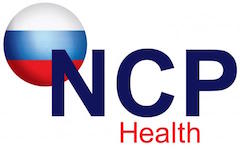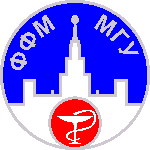A toxin group of a UK research organisation specialising in public health seeks research partners for topic IMI2-2016-09-01 proposal. The project focus is to address the clinical burden of clostridium difficile infection (CDI) including evaluation of the burden, current practices and set-up of a European research platform. Partners sought are research institutions, SMEs and academia with relevant active research/expertise or capabilities to support the project.
Infection with clostridium difficile, a gram-positive spore-forming anaerobe, is the most common cause of nosocomial diarrhoea in developed countries and leads to symptoms that range from self-limiting mild to moderate watery diarrhoea to severe fulminant diarrhoea, abdominal pain and pseudomembranous colitis. In some patients it may progress to toxic megacolon, colonic perforation and death. Over 500,000 new cases of C. difficile infection occur each year in the US and estimates suggest greater than 400,000 diagnosed CDI events occur annually in Europe, although the true incidence is likely to be much higher. Furthermore, the burden of CDI outside of the acute care hospital environment, particularly in nursing homes and long-term care facilities, is under-estimated. There is therefore a need to develop a robust assessment of the burden of CDI and current practices in Europe.
The scope of the project is to develop a detailed understanding of the epidemiology and clinical impact of CDI and more specifically to:
• align and understand the unmet public health needs relating to CDI;
• identify the direct and long term burden on healthcare systems;
• set up an EU research platform that will provide support for potential proof of concept studies of new prevention and treatment strategies.
The organisation seeking partners focuses on public health research and encourages discussions, advises government and supports action by local government, the National Health Service and other organisations. With significant experience in previous FP7, H2020 and other EU funding streams, they are actively engaged in applied research in microbiology and working across a range of aspects of microbial translational research. Key skills and expertise include protein chemistry, protein expression and purification, molecular biology, anaerobic microbiology, cellular assays and models, animal models for healthcare associated infections. Able to contribute significantly to work package 3 of the topic ‘build a research network and platform’ they have an established a toolbox of reagents and techniques which could contribute to basic and translational research related to CDI. These include:
• highly purified C. difficile toxins
• polyclonal and monoclonal antitoxins
• recombinant toxin fragments and bacterial surface proteins
• quantitative toxin-neutralisation assays
• animal models for CDI
The organisation would be able to contribute to the project in the following ways:
• facilitating research in partner(s) labs through the provision of reagents and model systems.
• facilitating varied research at partner lab(s) e.g. pathogenesis research, diagnostics or translational research into interventions.
• provide reagents (e.g. toxins, antibodies) and\or model systems (in vitro or in vivo assays)
Alternatively to collaborate on the development of an oral vaccine as follows:
• collaborate on an orally delivered vaccine in which partner(s) have expertise in oral vaccine formulation\delivery or novel vectors
• provide candidate antigens (gene\protein), other reagents and\or model systems (in vitro or in vivo assays)
They are seeking partners from other research institutes, SMEs and academia and research activities carried out by interested organisations can be diverse as they in the early stages of forming consortia and would be open to negotiating the scope of the project to ensure that all consortium partners are represented.
The deadline for the stage 1 of the two-stage call is 26 July 2016 and the deadline for expressions of interest from interested institutions should be made no later than by 24 June 2016. The deadline for the second stage of the call is 10 January 2017 and the project is expected to start in Q3 2017.




